Filter by
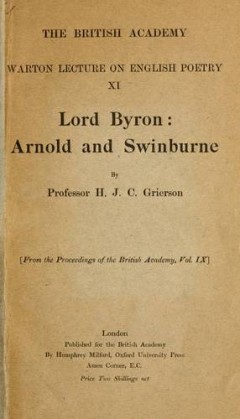
Lord Byron : Arnold and Swinburne
A lecture delivered at the British Academy in 1920, exploring the literary criticism of Byron by two opposing British poets of the Victorian era, Matthew Arnold and Algernon Swinburne.
- Edition
- -
- ISBN/ISSN
- -
- Collation
- -
- Series Title
- -
- Call Number
- 800 GRI l
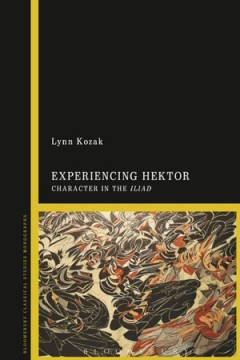
Experiencing Hektor : Character in the Iliad
This book presents a rigorous philological examination of every instance where Hektor enters the Iliad, analysing each entrance's narrative context and style. In so doing, the author challenges and destabilises previous popular and scholarly assumptions about Hektor, and about the Iliad as a whole.
- Edition
- -
- ISBN/ISSN
- 9781474245449
- Collation
- 328 halaman
- Series Title
- -
- Call Number
- 800 KOZ e
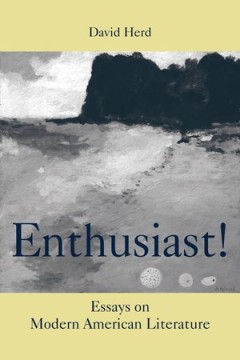
Enthusiast! : Essays on Modern American Literature
This book takes enthusiasm to be a defining feature of American literature, showing how successive major writers – Melville, Thoreau, Pound, Moore, Frank O’Hara and James Schuyler – have modernized and re-modeled Emerson’s founding sense of enthusiasm. The book presents the writer as enthusiast, showing how enthusiasm is fundamental to the composition and the circula…
- Edition
- -
- ISBN/ISSN
- 9780719074288
- Collation
- -
- Series Title
- -
- Call Number
- 800 HER e
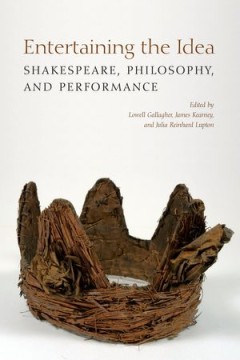
Entertaining the Idea : Shakespeare, Performance, and Philosophy
To entertain an idea is to take it in, pay attention to it, give it breathing room, dwell with it for a time. The practice of entertaining ideas suggests rumination and meditation, inviting us to think of philosophy as a form of hospitality and a kind of mental theatre. In this collection, organized around key words shared by philosophy and performance, the editors suggest that Shakespeare’s …
- Edition
- -
- ISBN/ISSN
- 9781487507435
- Collation
- 252 halaman
- Series Title
- -
- Call Number
- 800 GAL e
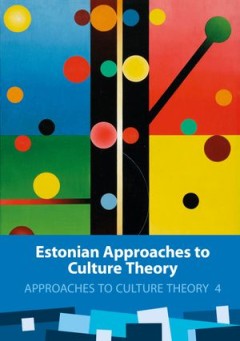
Estonian Approaches to Culture Theory
The fourth volume in the Approaches to Culture Theory series is a contemporary Estonian anthology in culture theory. Most of the authors are members of the research groups of the Centre of Excellence in Cultural Theory: archaeology, cultural communication studies, contemporary cultural studies, ethnology, folkloristics, religious studies, landscape studies, and semiotics. These scholars have re…
- Edition
- -
- ISBN/ISSN
- 9789949326136
- Collation
- 335 halaman
- Series Title
- Approaches to Culture Theory Series, #4
- Call Number
- 306 EST
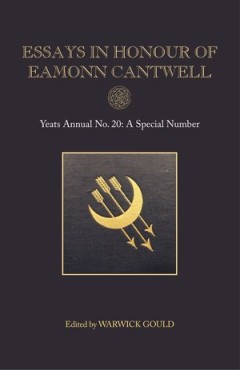
Essays in Honour of Eamonn Cantwell : Yeats Annual No. 20 : A Special Number
This number of Yeats Annual collects the essays resulting from the University College Cork/ESB International Annual W. B. Yeats Lectures Series (2003-2008) by Roy Foster, Warwick Gould, John Kelly, Paul Muldoon, Bernard O’Donoghue and Helen Vendler. Those that were available in pamphlet form are now collectors’ items, but here is the complete series.
- Edition
- -
- ISBN/ISSN
- 9781783741793
- Collation
- 505 halaman
- Series Title
- -
- Call Number
- 800 ESS
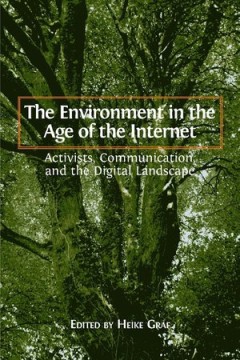
The Environment in the Age of the Internet : Activists, Communication, and th…
How do we talk about the environment? Does this communication reveal and construct meaning? Is the environment expressed and foregrounded in the new landscape of digital media? The Environment in the Age of the Internet: Activists, Communication, and the Digital Landscape is an interdisciplinary collection that draws together research and answers from media and communication studies, social sci…
- Edition
- -
- ISBN/ISSN
- 9781783742455
- Collation
- 192 halaman
- Series Title
- -
- Call Number
- 302 ENV
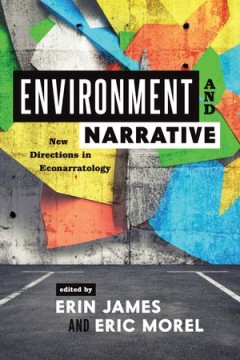
Environment and Narrative : New Directions in Econarratology
Never before has a collection of original essays strived to create such constructive, shared discourse between ecocritical and narrative scholars as well as environmental humanities scholars interested in narrative. Erin James and Eric Morel’s volume Environment and Narrative: New Directions in Econarratology explores the complexity of pairing material environments and their representations w…
- Edition
- -
- ISBN/ISSN
- 9780814214206
- Collation
- 232 halaman
- Series Title
- Theory and Interpretation of Narrative
- Call Number
- 800 ENV

Excavating the Future : Archaeology and Geopolitics in Contemporary North Ame…
Well-known in science fiction for tomb-raiding and mummy-wrangling, the archaeologist has been a rich source for imagining ‘strange new worlds’ from ‘strange old worlds.’ But more than a well-spring for SF scenarios, the genre’s archaeological imaginary invites us to consider the ideological implications of digging up the past buried in the future. A cultural study of an array of very…
- Edition
- -
- ISBN/ISSN
- 9781786941190
- Collation
- -
- Series Title
- Liverpool Science Fiction Texts and Studies
- Call Number
- 900 MAL e

The English Novel in the Magazines, 1740-1815
The English Novel in the Magazines, 1740-1815, explores the popularity of magazines in the nineteenth century and the ways that much of the published fiction of the time appeared serially in these publications. Robert D. Mayo’s groundbreaking study remains important to scholars of the nineteenth century as one of the first books to examine in a systematic manner the impact of magazines on rea…
- Edition
- -
- ISBN/ISSN
- 9780810138575
- Collation
- 712 halaman
- Series Title
- -
- Call Number
- 800 MAY e
 Computer Science, Information & General Works
Computer Science, Information & General Works  Philosophy & Psychology
Philosophy & Psychology  Religion
Religion  Social Sciences
Social Sciences  Language
Language  Pure Science
Pure Science  Applied Sciences
Applied Sciences  Art & Recreation
Art & Recreation  Literature
Literature  History & Geography
History & Geography